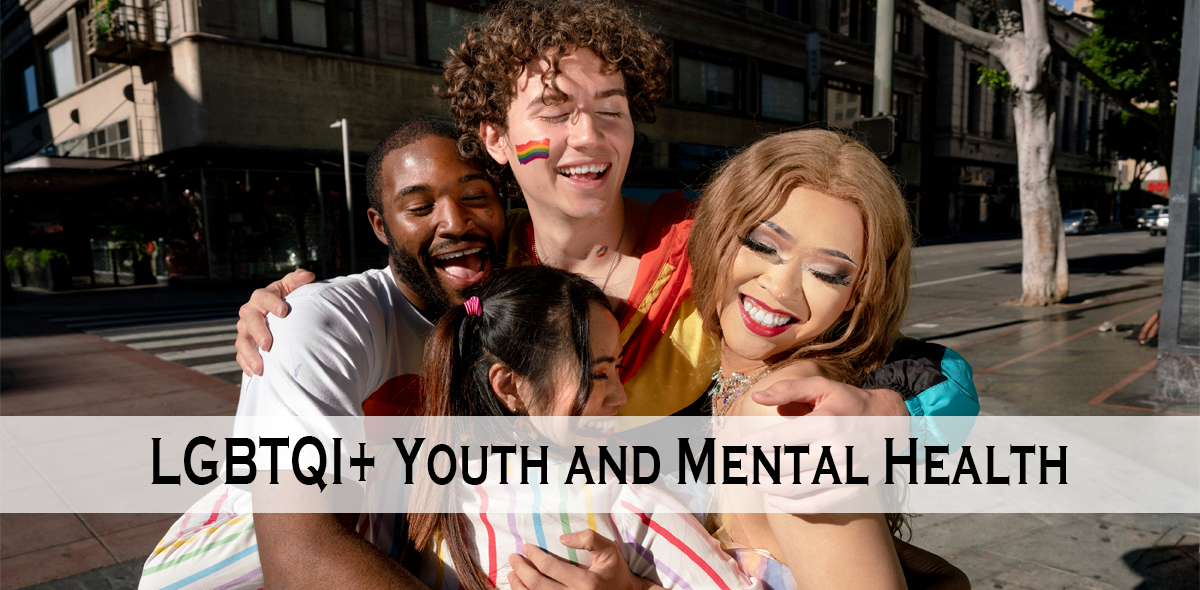The LGBTQI+ youth community faces a unique set of challenges. These stem from societal prejudices, family pressures, and internal struggles with identity. Understanding the mental health needs of LGBTQI+ youth is part of creating a more inclusive and supportive environment.
Understanding the Landscape
The mental health disparities between LGBTQI+ youth and their cisgender, heterosexual counterparts are striking. According to various studies, LGBTQI+ youth are at a higher risk for experiencing mental health issues such as depression, anxiety, suicidal ideation, and substance abuse. Factors contributing to these disparities include discrimination, stigma, and lack of support.
1. Discrimination and Stigma
Living in a heteronormative society often means facing a lot of intolerance. This can make professional, academic, and social environments hostile places for LGBTQI+ youth. Discrimination, whether it is overt or subtle, has adverse effects on mental health. LGBTQI+ youth often face discrimination at school, within their families, or in the community. This can make them feel isolated and cause psychological distress.
Many LGBTQI+ teens also struggle with feeling unseen, unheard, or invalidated. This contributes to isolation and alienation and negatively affects mental health.
2. Family Acceptance
Family acceptance is a key component of mental health for LGBTQI+ youth. The support and validation from family members, or lack thereof, influences their self-esteem and self-acceptance.
3. School Environment
School environments can often be a source of high stress. The bullying and harassment that LGBTQI+ youth face can trigger or worsen mental health problems
4. Internalized Homophobia
Internalized homophobia is when a person intentionally or unknowingly applies homophobic attitudes towards themselves. This can also contribute to mental health challenges, as LGBTQI+ youth may struggle with their identity and place amidst societal norms and expectations.
Build A Supportive Environment
Creating a nurturing environment for LGBTQI+ youth is a step towards addressing mental health disparities.
Family Counseling
Family counseling can be a valuable resource in helping family members understand, accept, and validate their LGBTQI+ family member.
Educate Yourself
Educate yourself about the diverse experiences and identities within this community. Recognize that there is no one-size-fits-all approach; every individual's journey is unique. Books, documentaries, and online resources can help you gain insight. The fact that you are making an effort to understand your child shows them your commitment to their well-being. Knowledge will empower you to offer them informed guidance and support.
Nonjudgmental Communication
Create a safe space where they can express their feelings, thoughts, and concerns without fear of judgment or criticism. You can do this by listening actively, showing empathy, and avoiding going into ‘fix it’ mode.
Also, try to use inclusive and affirming language. Make an effort to understand the terms they use to describe their gender identity and sexual orientation. Avoid making assumptions or imposing your own expectations on them. Instead, ask questions to express your interest in them and to gain clarity.
Respect Their Identity
You can respecting your LGBTQI+ teen's identity by accepting them for who they are, just as you would with any other child. If your child comes out to you, respond with love and support. Use their chosen name and pronouns consistently, even if it takes time to adjust. Gender-affirming practices can positively impact their self-esteem and mental health.
Advocate for Their Rights
LGBTQI+ youth often face discrimination and prejudice at school and in society. Be an advocate for your child's rights. Ensure they have access to a safe and inclusive learning environment. Familiarize yourself with the policies and anti-discrimination laws in your area to protect your child's rights. If necessary, work with teachers, school administrators, and support organizations to address any issues of bullying or discrimination.
Connect with Supportive Communities
Building a strong support network is vital for LGBTQI+ teens. Help your child connect with local LGBTQI+ organizations, support groups, and online communities. Here, they can find like-minded peers who understand their experiences. These forums also offer a sense of belonging and can provide guidance and mentorship.
Mental Health Support
LGBTQI+ teens are at a higher risk of experiencing mental health challenges due to societal stigma and discrimination. Make sure your child has access to mental health resources, including therapy and counseling services. Normalize seeking help for mental health concerns. Let them know that it is okay to ask for help.
Be Prepared for Challenges
Though you strive to create a nurturing and accepting environment, challenges may still arise. Some family members or friends may not be as accepting, or your child may encounter resistance or discrimination outside the home. Be prepared to support them through these difficulties, and offer guidance and reassurance.
Trust Mental Health has a team of BIPOC therapists that includes LGBTQI+ individuals. Our therapists offer tailored therapy that affirms LGBTQI+ experiences. We provide LGBTQI+ therapy in San Jose, California. Contact us today for a free 15 minute consultation.
FAQs
What is LGBTQI+ youth mental health, and why is it important to address?
LGBTQI+ youth mental health refers to the emotional and psychological well-being of young individuals who identify as lesbian, gay, bisexual, transgender, queer, intersex, or any other non-binary or gender-diverse identity. It should be addressed because LGBTQI+ youth often face unique challenges related to stigma, discrimination, and their identity. These can impact their mental health significantly.
What mental health challenges do LGBTQI+ youth commonly face?
LGBTQI+ youth may experience higher rates of depression, anxiety, self-harm, suicidal ideation, and substance abuse compared to their heterosexual and cisgender peers. This is in part due to factors such as bullying, rejection, and prejudice.
How can LGBTQI+ youth find a supportive community or network?
LGBTQI+ youth can find supportive communities through local LGBTQI+ organizations, school clubs, online forums, and social media groups. Building a network of peers who share similar experiences can be beneficial. Trust Mental Health offers LGBTQI+ therapy in San Jose and all over California.




.jpg)

Comments